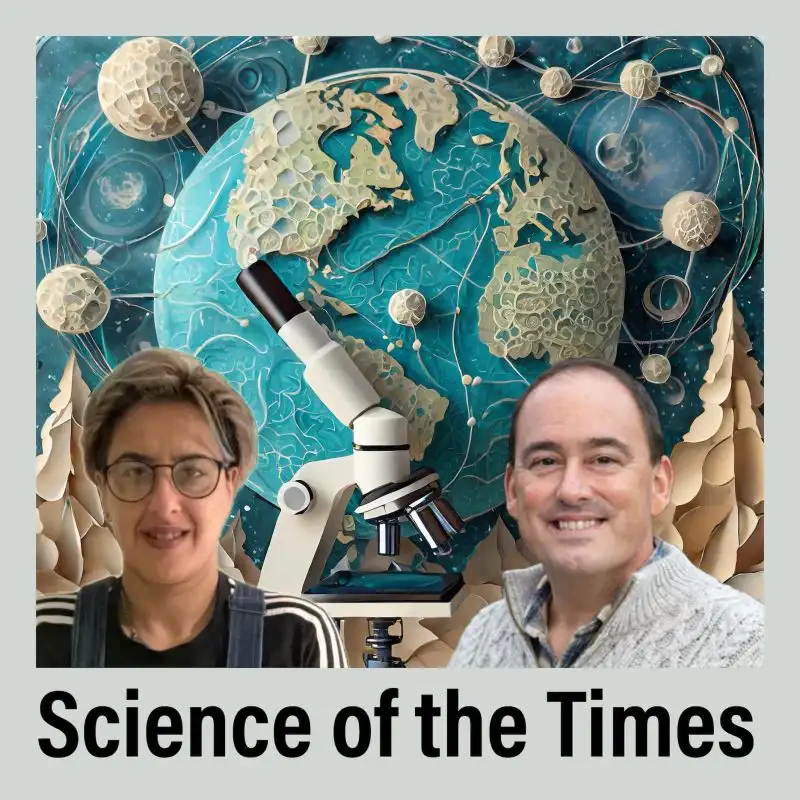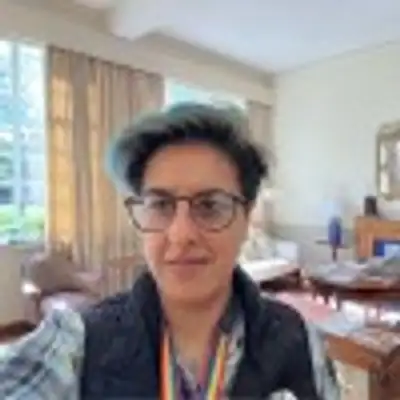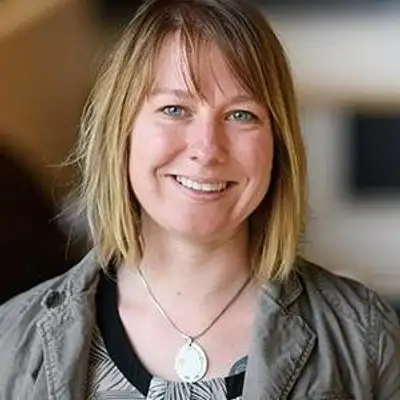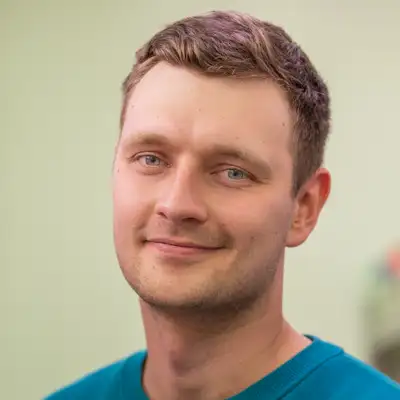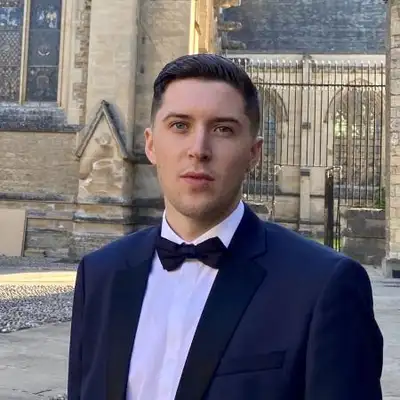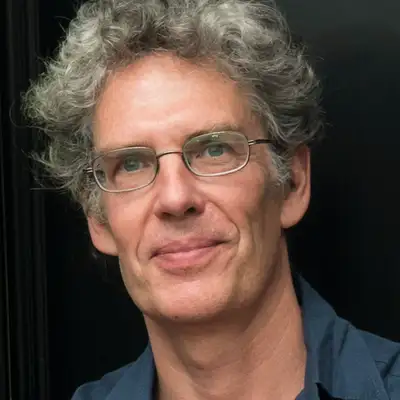Creators and Guests
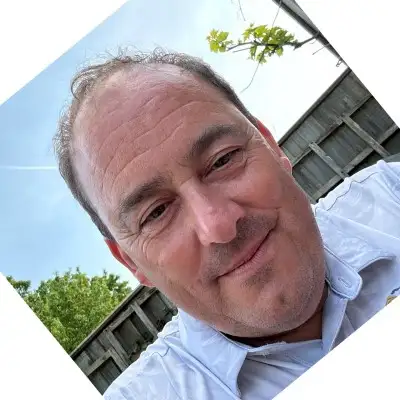
Host
Tim Coulson
Author of The Universal History of Us published by Penguin 2024 Professor of Zoology, University of Oxford EcologyEvolution, Existence, Science
Appears in
45
episodes
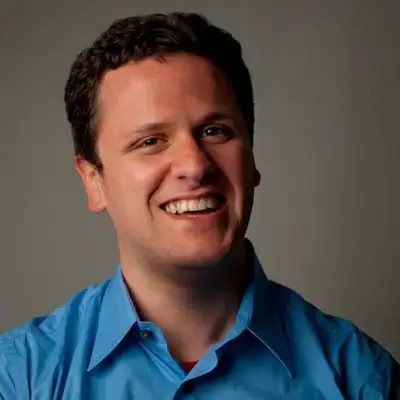
Guest
Adam Becker
Adam Michael Becker (born 1984) is an American astrophysicist, author, and scientific philosopher. His works include the book What Is Real?, published by Basic Books, which explores the history and personalities surrounding the development and evolution of quantum physics, and includes a modern assessment of the Copenhagen Interpretation.
Appears in
1
episode
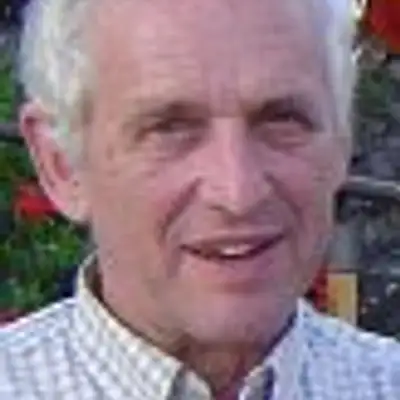
Guest
Addy Pross
Addy is an Emeritus Professor at the department of Chemistry: Ben Gurion University of the Negev, Be'er Sheva, Israel.
Appears in
1
episode
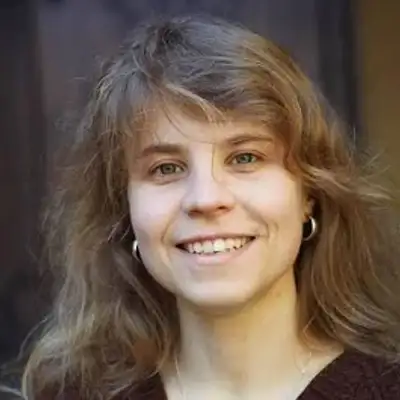
Guest
Aura Raulo
I study the spread of symbiotic microbiota in the social contact networks of wild mice. My background is in island ecology, and this has led me to study wild animals as if they are moving islands, carrying a mini-ecosystem of bacteria inside of them. Whenever two animals come in close contact, there is a chance for these microbes to spread between them. Thus we can treat the social networks of animals as the road map (or bridge map) for microbiome transmission, which shapes the unique and influential gut microbial communities living inside these animals. To achieve this, I'm involved with developing new RFID-based tracking and trapping technology to collect high-resolution gut microbial and behavioural data. In addition, I'm developing Bayesian regression methods for analysing pairwise data, such as linking microbiota similarity between two individuals to the strength of their social association.
Appears in
1
episode
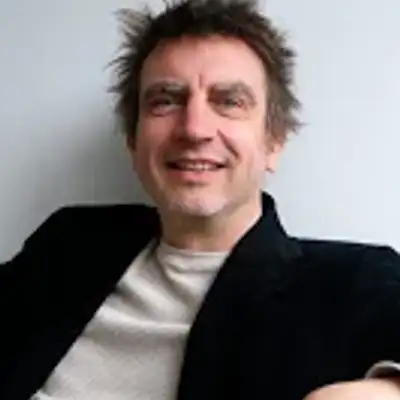
Guest
Christopher Summerfield
Christopher Summerfield is Fellow by special election and principal investigator at the Summerfield lab which conducts research into how humans make decisions. Chris Summerfield was trained in psychology and neuroscience at University College London, Columbia University (New York), and the École normale supérieure (Paris). He is Professor of Cognitive Neuroscience in the department of Experimental Psychology, where he heads a lab focussed on understanding the computational mechanisms by which humans make decisions, and how these processes are implemented in the brain. His work, which involves a combination of computer simulations, behavioural testing, and functional brain imaging, is funded by a grants from the European Research Council, the Wellcome Trust, and the National Institute of Health.
Appears in
1
episode
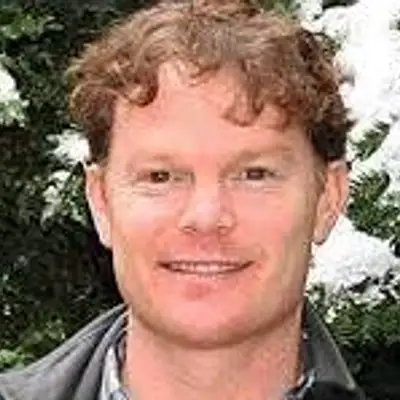
Guest
Dan MacNulty
I work at the interface of animal behavior, population biology, and community ecology to address basic and applied questions in ecology and conservation. I began my research career in 1995 as a field technician in Yellowstone National Park where I assisted with wolf reintroduction and post-release wolf monitoring. I have conducted research related to Yellowstone wolves ever since. Much of my research centers on understanding the ecological consequences of wolf reintroduction as part of several long-term, collaborative studies of carnivores, ungulates, and plants in northern Yellowstone National Park. Many of my findings are presented in my co-authored/edited books Wolves on the Hunt: The Behavior of Wolves Hunting Wild Prey, and Yellowstone Wolves: Science and Discovery in the World’s First National Park, both published by the University of Chicago Press.
Appears in
1
episode
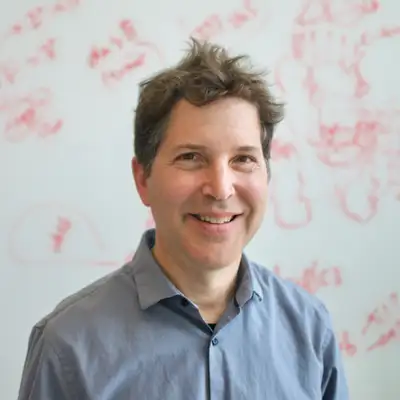
Guest
David Baker PhD - Nobel prize winner 2024 for Chemistry
David Baker is an American biochemist and computational biologist who has pioneered methods to design proteins and predict their three-dimensional structures. He is the Henrietta and Aubrey Davis Endowed Professor in Biochemistry, an investigator with the Howard Hughes Medical Institute, and an adjunct professor of genome sciences, bioengineering, chemical engineering, computer science, and physics at the University of Washington. He was awarded the shared 2024 Nobel Prize in Chemistry for his work on computational protein design.
Appears in
1
episode
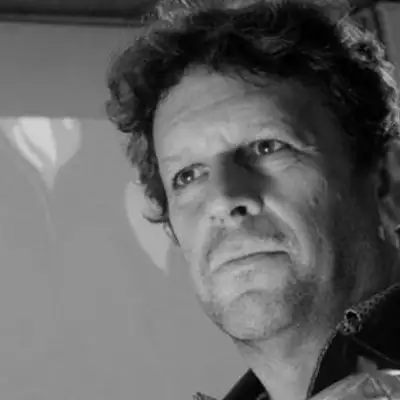
Guest
David Pyle
Professor Pyle is a volcanologist who works in volcanic regions in Chile, Ethiopia, and Greece. His current projects include the STREVA (Strengthening Resilience in Volcanic Areas) project. He is interested in understanding how volcanoes work, and in the causes and consequences of volcanic activity.
Appears in
1
episode
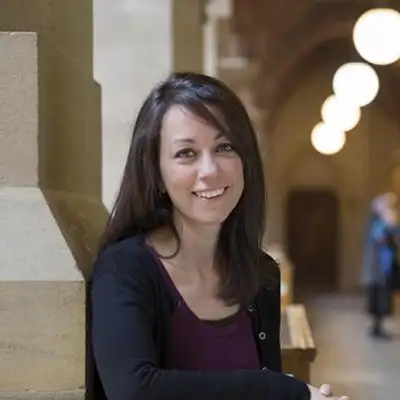
Guest
Dora Biro
Dora Biro is a behavioral biologist and the Beverly Petterson Bishop and Charles W. Bishop Professor, Brain and Cognitive Sciences at the University of Rochester.[1][2] She was previously a Professor of Animal Behaviour at the University of Oxford.[3] and a visiting professor in the Primate Research Institute of Kyoto University in Japan.[4] Biro studies social behavior, problem solving, and learning in birds and primates.
Appears in
1
episode
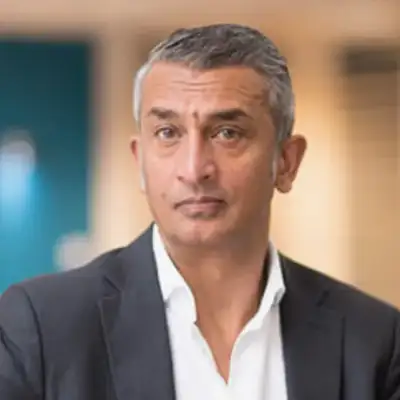
Guest
Dr Gordon Sanghera
Gordon Sanghera is co-founder of Oxford Nanopore with Spike Willcocks and Hagan Bayley. He was appointed CEO in May 2005 and has led the company through multiple finance rounds, and in 2021, a listing on the London Stock Exchange. The company has developed a new generation of nanopore-based sensing technology. The first products enable the real-time, high-performance, accessible and scalable analysis of DNA and RNA, and this new class of sensing has the potential to expand into proteomics and metabolomics.
Appears in
1
episode
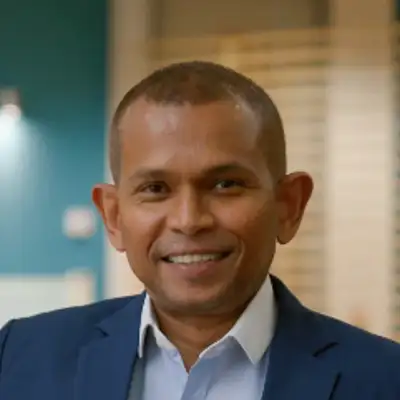
Guest
Dr Lakmal Jayasinghe
Dr Lakmal Jayasinghe is the Chief Scientific Officer at Oxford Nanopore Technologies, where he leads the company's scientific vision, driving groundbreaking research and development to advance innovation in nanopore sequencing and its transformative applications.
Appears in
1
episode
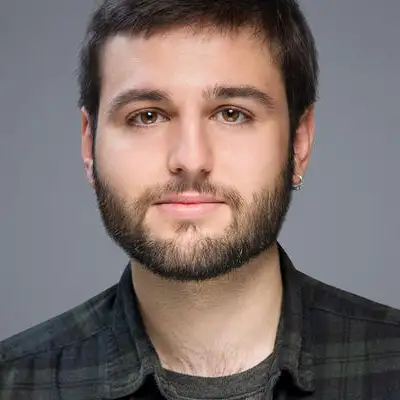
Guest
Dr Nilo Merino Recalde
I am a multidisciplinary researcher with a background in visual arts, anthropology, and biology. I am interested in animal culture, using sound to understand animal behaviour and ecology, applied machine learning, open research, and data visualisation. My current research involves large-scale acoustic monitoring of biodiversity, and I spent most of my time programming or in the field.
Appears in
1
episode
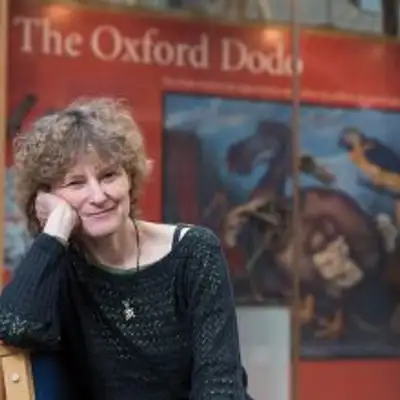
Guest
EJ Milner-Gulland
Professor Milner-Gulland is interested in understanding how social, ecological and behavioural factors interact and how they affect key issues in current conservation.
Appears in
1
episode
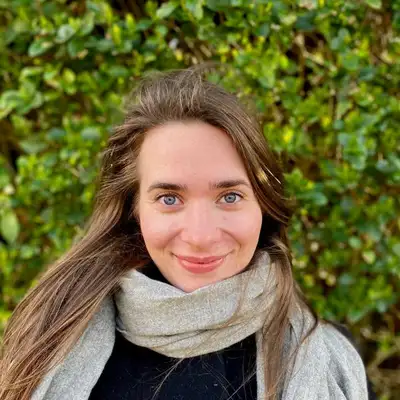
Guest
Eveliina Hanski
Eveliina Hanski is a scientist working on the microbes living in the mammalian gut. This remarkable ecosystem, commonly known as the gut microbiome, is now recognized to play an important role in the physiology of the animal housing it
Appears in
1
episode
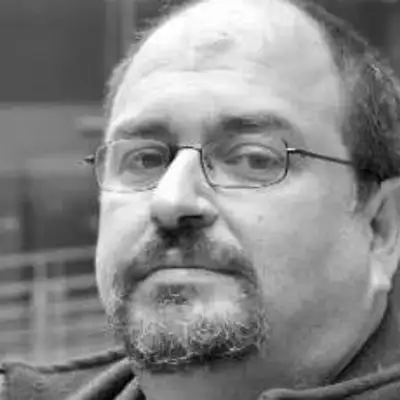
Guest
Henry Gee
Henry Ernest Gee is a British paleontologist, evolutionary biologist and senior editor of the scientific journal Nature.
Appears in
1
episode
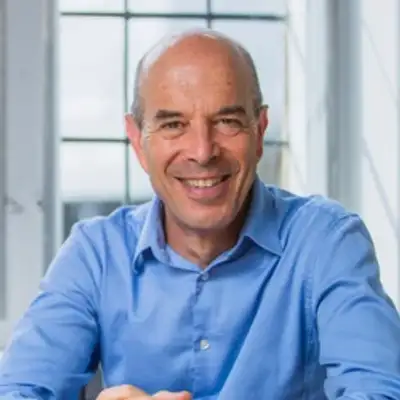
Guest
Ian Goldin
an Andrew Goldin is a South African-born British professor at the University of Oxford in England, and was the founding director of the Oxford Martin School. Goldin is currently the director of the Oxford Martin Research Programmes on Technological and Economic Change, Future of Work and Future of Development.
Appears in
1
episode
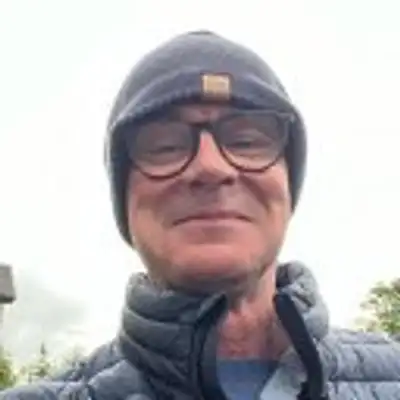
Guest
Jamie Woodward
Professor of Physical Geography in the Department of Geography at The University of Manchester and a member of the Quaternary Environments and Geoarchaeology Research Group. Current research themes include exploring records of human activity in ice age environments, Holocene river environments, Anthropocene rivers and microplastic contamination, geoarchaeology of the Nile Valley, records of Pleistocene glaciation and river behaviour in the Mediterranean mountains.
Appears in
1
episode
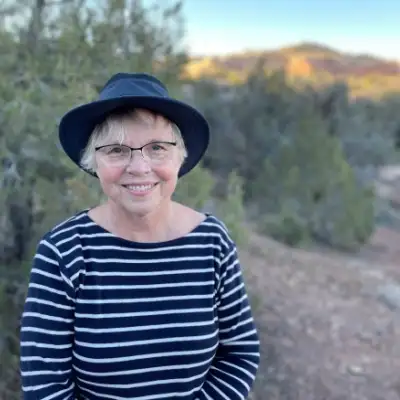
Guest
Joan Strassman
Joan E. Strassmann is an American evolutionary biologist and the Charles Rebstock Professor of Biology at the Washington University in St. Louis. She is known for her work on social evolution and particularly how cooperation prospers in the face of evolutionary conflicts
Appears in
1
episode
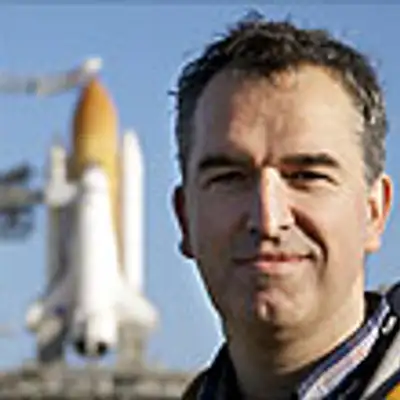
Guest
Jonathan Amos
Journalist. Former BBC Science Correspondent. Way too interested in icebergs for my own good!
Appears in
1
episode
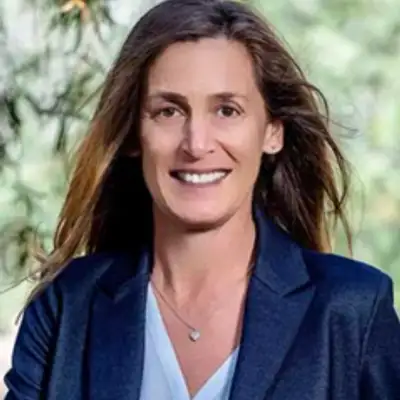
Guest
Leah Gerber
Leah Gerber is a professor of conservation science in the School of Life Sciences and founding director of the Center for Biodiversity Outcomes (CBO) at Arizona State University. Gerber’s research, teaching, and leadership advance the integration of science in decision processes to achieve sustainable biodiversity outcomes
Appears in
1
episode
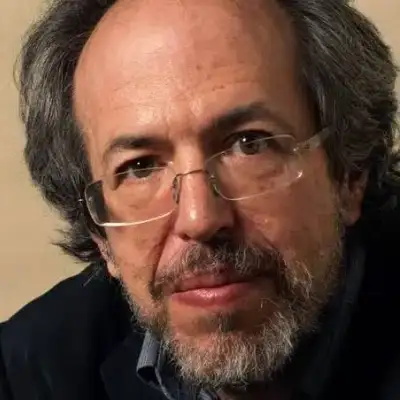
Guest
Lee Smolin
Lee Smolin is a theoretical physicist who has been since 2001 a founding and senior faculty member at Perimeter Institute for Theoretical Physics. His main contributions have been so far to the quantum theory of gravity, to which he has been a co-inventor and major contributor to two major directions, loop quantum gravity and deformed special relativity.
Appears in
1
episode
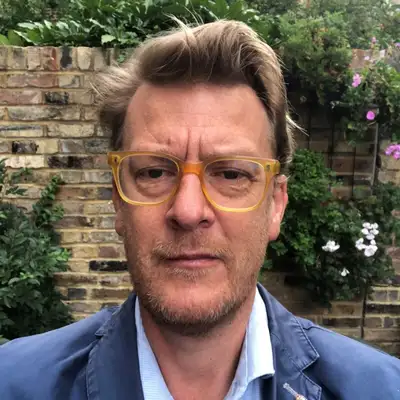
Guest
Max Telford
Max Telford is an evolutionary biologist in the Department of Genetics, Evolution and Environment at University College London where he holds the Jodrell Chair of Zoology and Comparative Anatomy. He is the founding director of the Centre for Life’s Origins and Evolution (CLOE) at UCL.
Appears in
1
episode
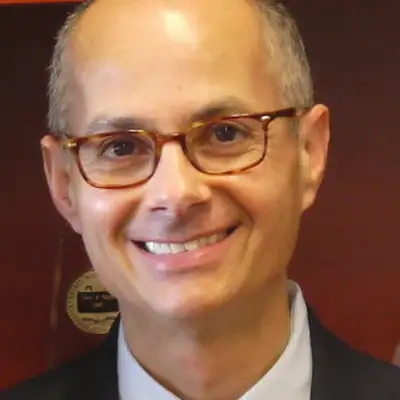
Guest
Omar Yaghi
Omar M. Yaghi received his Ph.D. in Chemistry from University of Illinois at Urbana-Champaign, and was an NSF Postdoctoral Fellow at Harvard University. He is the James and Neeltje Tretter Chair Professor of Chemistry at University of California, Berkeley. He is the Founding Director of the Berkeley Global Science Institute whose mission is to build centers of research in developing countries and provide opportunities for young scholars to discover and learn. He is also the Co-Director of the Kavli Energy NanoSciences Institute (Kavli ENSI) focusing on the basic science of energy transformation on the molecular level, the California Research Alliance by BASF (CARA) supporting joint academia-industry innovations, as well as the Bakar Institute of Digital Materials for the Planet (BIDMaP) which aims to develop cost-efficient, easily deployable versions of two classes of ultra porous materials – known as metal-organic frameworks (MOFs) and covalent organic frameworks (COFs) – to help limit and address the impacts of climate change.
Appears in
1
episode
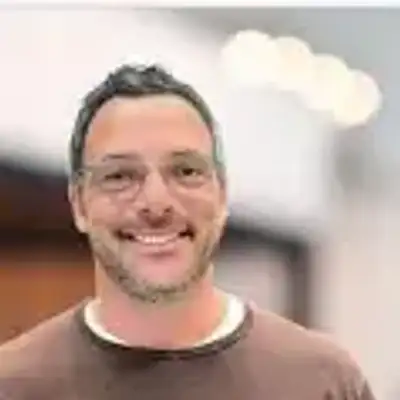
Guest
Philipp Kukura
Philipp Kukura FRSC is Professor of Chemistry at the University of Oxford, and a Fellow of Exeter College, Oxford. He is best known for pioneering contributions to femtosecond stimulated Raman spectroscopy, interferometric scattering microscopy and the development of mass photometry.
Appears in
1
episode
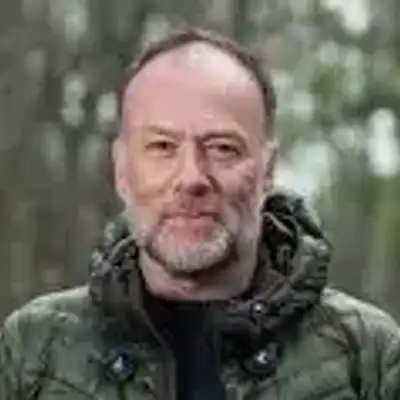
Guest
Professor Ben Sheldon FRS
Ben C. Sheldon is the Luc Hoffmann Chair in Field Ornithology and Director of the Edward Grey Institute of Field Ornithology of the University of Oxford's Department of Zoology. He was Head of the Department of Zoology between 2016 and 2021. His research addresses causes and consequences of individual variation in wild populations, particularly of birds. He was awarded the 2020 Linnean Medal for "his service to science in the field of Zoology", and elected as Fellow of the Royal Society in 2022.SOTT Episode 5 _Audio Master
Appears in
1
episode
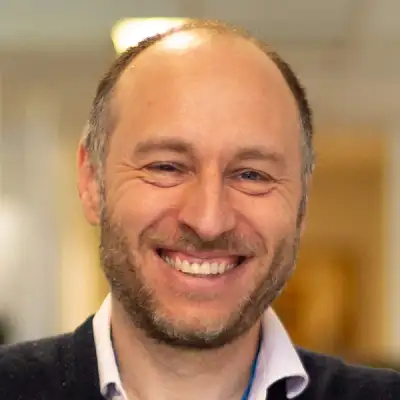
Guest
Professor David Bennett
My research aim is to gain a better understanding of the response of the nervous system to injury in order to develop strategies to promote peripheral nerve repair and to prevent the development of neuropathic pain. This is complementary to my clinical interest in peripheral neuropathy and pain management.
Appears in
1
episode
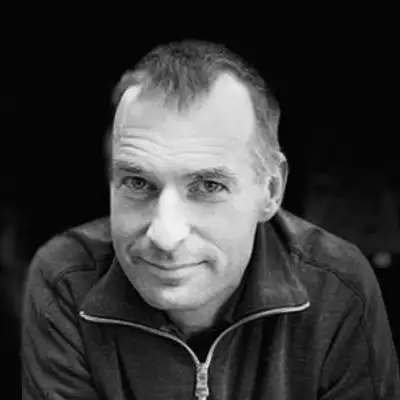
Guest
Professor Greger Larson
Director Palaeogenomics & Bio-Archaeology Research Network Brasenose College
Appears in
1
episode
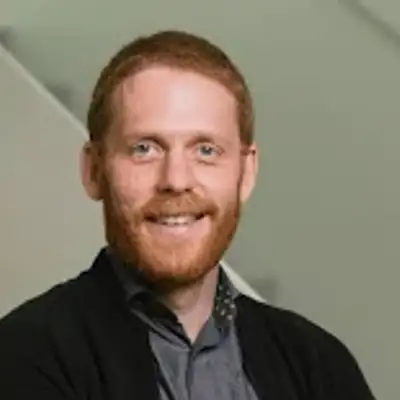
Guest
Professor Paul Behrens
Paul is the author of the popular science book, The Best of Times, The Worst of Times: Futures from the Frontiers of Climate Science (Indigo Press, 2021) which describes humanity’s current trajectory and possible futures in paired chapters of pessimism and hope. His research and writing on climate, energy, and food, has appeared in scientific journals and media outlets such as the BBC, The Guardian, Thomson Reuters, Politico, Nature Sustainability, Nature Energy, PNAS, Nature Food, and Nature Communications. He is an editor and author of the interdisciplinary textbook Food and Sustainability (Oxford University Press, 2020). Paul won International Champion in the Frontiers Planet Prize in 2023.
Appears in
1
episode
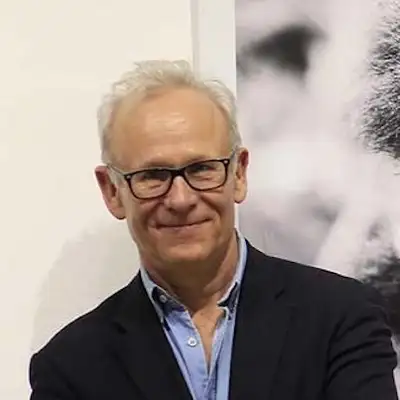
Guest
Professor Peter Hudson FRS
Peter Hudson was the first to demonstrate that the boom and bust cycles of red grouse populations were linked to their infection with a parasitic worm. In his classic study he gathered evidence through an inventive series of field experiments, treating individually identified birds with antiparasitic drugs and measuring their breeding success. He has gone on to explore how infection affects population ecology in a broad range of hosts, and under different conditions of climate, predation and food supply. Peter’s interests extend from the spread of infection through wild populations to the transmission of diseases to humans. He received the 2005 Carlton Herman Award from the US Wildlife Disease Association. He was elected Corresponding Fellow of the Royal Society of Edinburgh in 2010 and a Fellow of the American Association for the Advancement of Science in 2012. He was given an Honorary Degree by Queen Mary University of London in 2014.
Appears in
1
episode
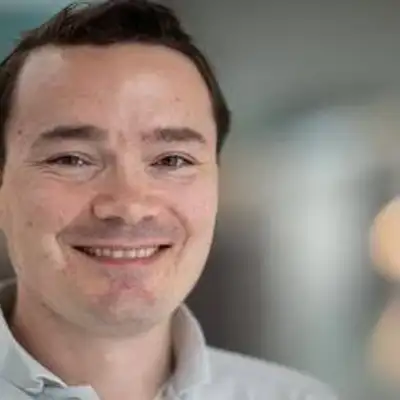
Guest
Professor Simon Newstead
Simon Newstead holds the David Phillips Chair of Molecular Biophysics in the Department of Biochemistry, is a member of the Kavli Institute for Nanoscience Discovery in Oxford and a Professorial Fellow at Corpus Christi College, Oxford.
Appears in
1
episode
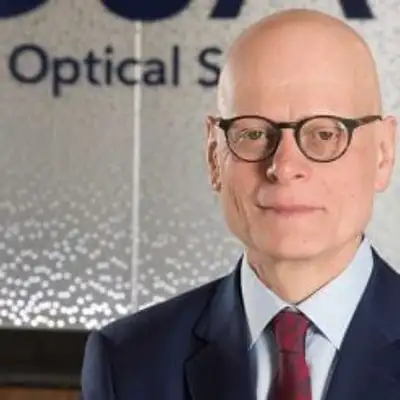
Guest
Prof. Ian Alexander Walmsley CBE FRS
Ian Alexander Walmsley CBE FRS (born 1960)[1] is Provost of Imperial College London where he is also Chair of Experimental Physics. He was previously pro-vice-chancellor for research and Hooke Professor of Experimental Physics at the University of Oxford,[1] and a professorial fellow at St Hugh's College, Oxford.[2] He is also director of the NQIT (Networked Quantum Information Technologies) hub within the UK National Quantum Technology Programme, which is led by the University of Oxford.[3] He is also a Fellow of the Institute of Physics, the American Physical Society and the Optical Society of America.[4] He will return to Oxford from October 2025 as Director of the Oxford Quantum Institute.
Appears in
1
episode
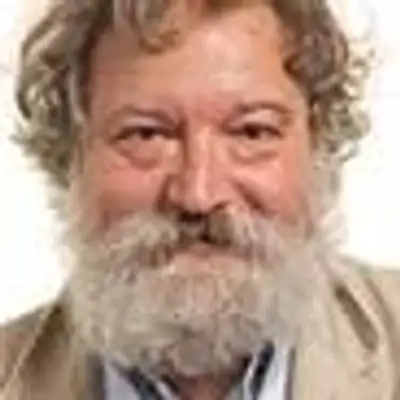
Guest
Ray Pierrehumbert
Raymond T Pierrehumbert FRS is professor of planetary physics at the University of Oxford
Appears in
1
episode
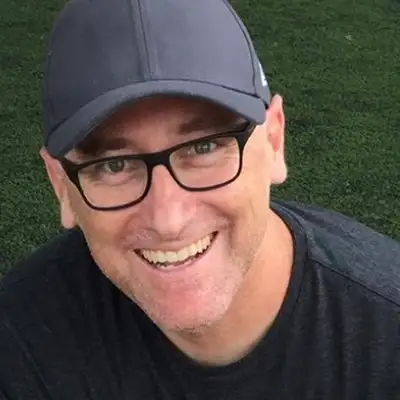
Guest
Robbie Wilson
Robbie is a Professor of Performance Biology at one of Australia’s top universities and multiple winner of prestigious research and university teaching awards. He works with some of the world’s best youth academies and football organisations to improve talent ID and player development.
Appears in
1
episode
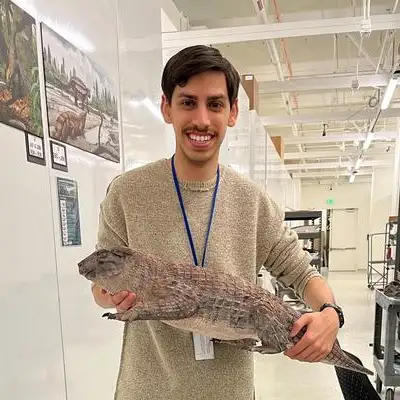
Guest
Roger Benson
My expertise is focused on Mesozoic and Late Palaeozoic groups including dinosaurs and other reptiles. My research group has addressed fundamental questions on the deep time evolutionary history of tetrapods more widely, including mammals, birds, crocodylians, turtles, lizards and their ancestors. It also finds links between the past and the present, using large datasets of extant species anatomy to test hypotheses of the ecology of extinct species such as dinosaurs.
Appears in
1
episode
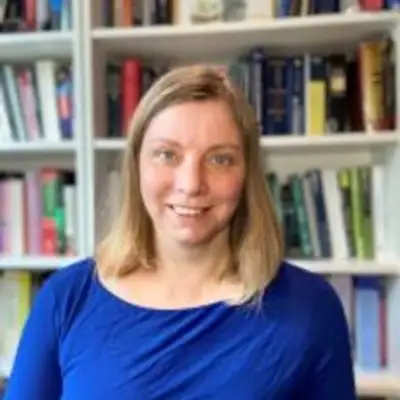
Guest
Sara Russell
Sara is a professor of planetary sciences and leader of the Planetary Materials Group at the Natural History Museum, London. She is a Fellow of the Meteoritical Society and of the Royal Astronomical Society.
Appears in
1
episode
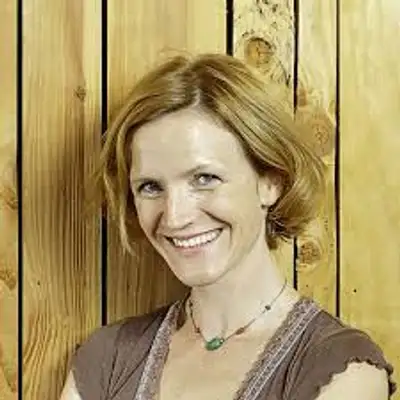
Guest
Seirian Sumner
Seirian Sumner FRES is a British entomologist and behavioural ecologist. She is a professor at University College London and is an expert in social wasps
Appears in
1
episode
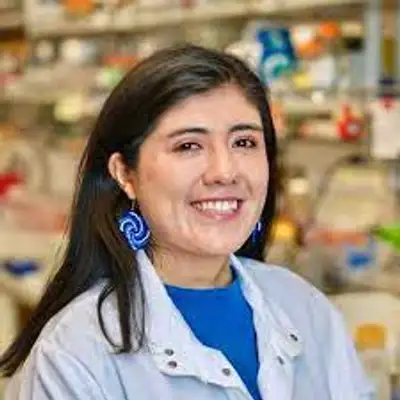
Guest
Susana Vazquez
My project is focused on using de novo TIM barrels scaffolds to create novel metalloenzymes
Appears in
1
episode
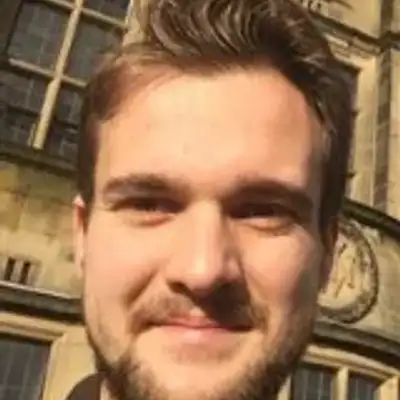
Guest
Tim Jenkins
Associate Professor, Department of Biotechnology and Biomedicine Center for Antibody Technologies
Appears in
1
episode
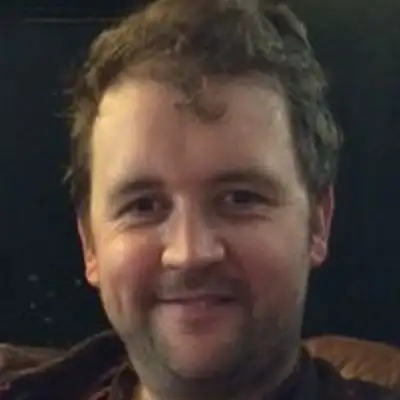
Guest
Tom Richards
Tom’s research is concerned with the diversity and evolution of the eukaryotic form, especially microbial forms. Over 1.5 billion years ago the most important evolutionary transition in the history of life occurred, leading to complex/compartmentalized cellular forms -the eukaryotes. The aim of Tom’s research is to understand the evolution and diversification of this form.
Appears in
1
episode
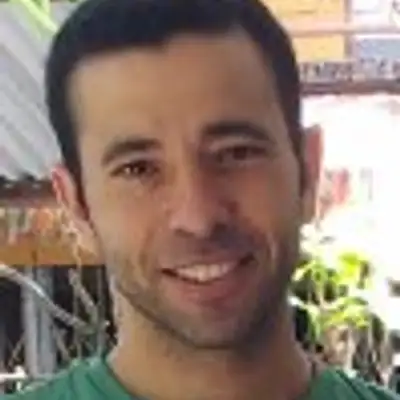
Guest
Yossi Yovel
Prof. Yossi Yovel is a full Professor and the head of the lab of NeuroEcology in the School of Zoology and the head of the Sagol School of Neuroscience at Tel Aviv University. He received a B.Sc. degree in Biology and another one in physics both from Tel Aviv University, an M.Sc. in Neuroscience from Tel-Aviv University and a Ph.D. in Biology and Machine Learning from the University of Tuebingen, Germany. He then completed two post-docs: one in the Weizmann Institute and one in the University of Chicago before joining Tel-Aviv University Faculty in 2011. Prof. Yovel has authored more than 50 journal papers and presented dozens of invited talks.
Appears in
1
episode
